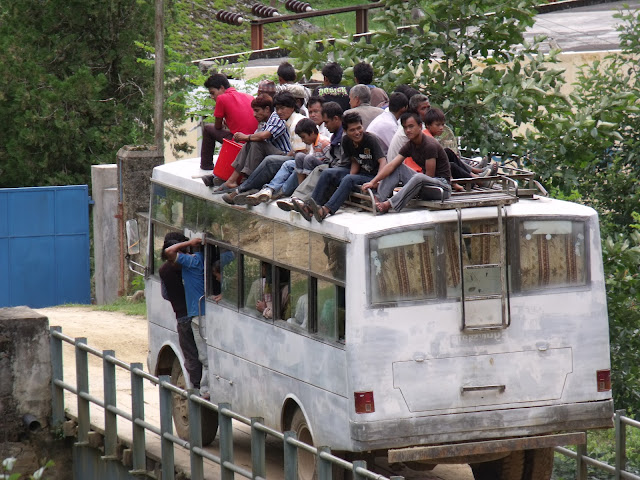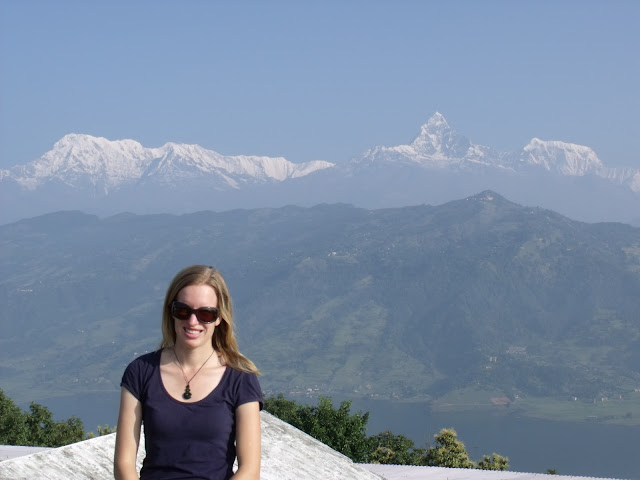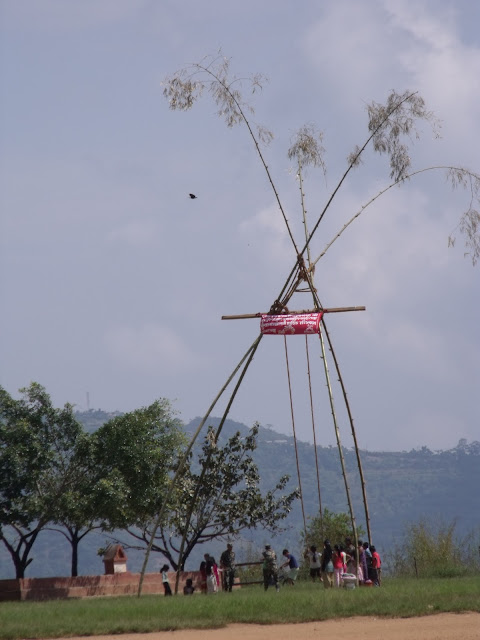Taking a bus trip in Nepal is always interesting, be it a five minute ride down the road or a long distance journey. Its vibrant, chaotic and never boring! The public buses tend to be old, beat up vehicles that would never pass a WOF in New Zealand. They may have windows missing, holes in the floor or wonky seats. This is just what we can see, the engines tend to rattle and the exhaust belches out black fumes. The brakes aren't always in good repair either and sadly just a few days ago a bus plunged into the gorge below killing 42 passengers after its brakes failed.
However, the buses are amazingly regular, and in many ways convenient, going between the larger towns and cities. Buses between Banepa and Kathmandu leave every few minutes, but for more remote places will only travel once or twice a day. The bus will typically have a driver, and two assistants (often young boys). The assistants job is to advertise the route by repetitively shouting the destination from the open door of the bus as it drives along, and to collect the passengers fares. The boys will climb up and down from the bus roof while the bus is moving to collect fares.
The aim is get as many passengers on board as possible, and there is always room for one more person. Most buses are made for Nepali size people meaning Ben can't stand upright or fit in the seats (no leg room). We've had babies and kids put on our laps, and its not uncommon to get a stray elbow or bottom in your face if you are sitting. When there is no more space inside, passengers sit on the roof. We've seen buses so overloaded that people are hanging off the back stairs and out the door. Buses are not only crammed with people, but also with their luggage. There's bags of all shapes and sizes down the aisle, and on the roof. During dasain we'd see buses with 20 goats on the roof!
 |
| Traffic jam - vehicles overtaking each other after an accident add to the conjestion |
| |
|
 |
| Overcrowded bus |
Constant stopping and starting means bus journeys take twice as long as any other vehicle. Our longest journey by public bus was 95km and it took 5 hours! In part because of the constant stopping and starting and due to the poor road conditions - see
life on the road.


































